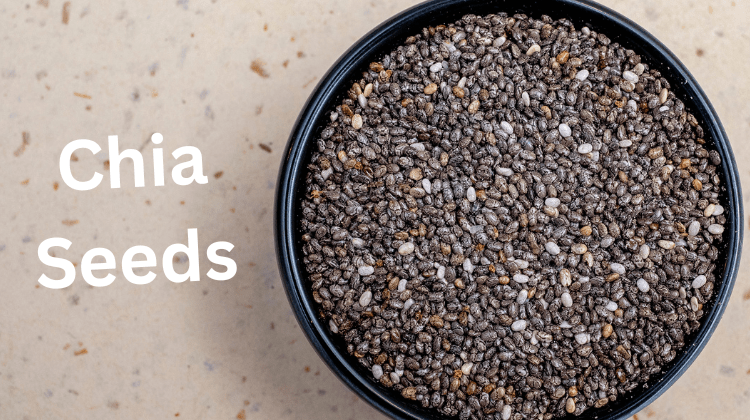Flax seeds might be tiny, but their impact on health is anything but small. These nutrient-dense seeds have quietly made their way into kitchens, smoothies, and wellness routines across the globe. With their rich content of omega-3 fatty acids, fiber, and antioxidants, flax seeds are now recognized as one of the most beneficial additions to a balanced diet.
Once used in ancient remedies and traditional dishes, flax seeds are now gaining serious attention from health-conscious eaters, dietitians, and fitness experts alike. Whether you’re looking to improve digestion, support heart health, manage weight, or just eat cleaner, flax seeds offer a simple and natural way to give your body a nutritional boost.
In this beginner-friendly guide, you’ll discover:
- What flax seeds actually are and where they come from
- Their full nutritional profile and powerful health benefits
- The best ways to consume them for maximum effect
- Who should include them — and who might want to avoid them
If you’ve been curious about flax seeds or unsure how to use them, this guide will walk you through everything you need to know to get started with confidence.
What Are Flax Seeds?
Flax seeds are tiny, oval-shaped seeds that come from the flax plant, scientifically known as Linum usitatissimum. Despite their small size, they’ve played a big role in traditional medicine and agriculture for centuries. Historically, flax was grown not just for food, but also for its fibers, which were used to make linen cloth — in fact, the Latin name usitatissimum literally means “most useful.”
Today, flax seeds are widely valued for their nutritional and medicinal properties, often referred to as a “functional food.” They’re rich in omega-3 fatty acids (especially ALA), lignans, fiber, and plant-based protein — making them a go-to for health-conscious individuals.
Types of Flax Seeds: Brown vs. Golden
Flax seeds generally come in two main varieties:
- Brown flax seeds
- Golden (or yellow) flax seeds
Nutritionally, both are quite similar, offering the same health benefits. However, some people prefer golden flax seeds because they have a milder taste and lighter color, making them easier to blend into recipes like smoothies, oatmeal, or baked goods.
- Brown flax seeds are more commonly found and often slightly less expensive.
- Golden flax seeds are sometimes marketed as premium but contain nearly identical nutrients.
Nutritional Profile of Flax Seeds
Flax seeds may be small, but they’re loaded with nutrients your body thrives on. From fiber and plant-based protein to omega-3 fatty acids and essential minerals, they offer an impressive nutritional profile in every spoonful.
Understanding the flaxseed nutrition facts is the first step in making them a valuable part of your everyday meals.
Macronutrients: Fiber, Protein, and Healthy Fats
Just one tablespoon (around 10 grams) of flax seeds delivers a great balance of macronutrients:
- Dietary Fiber (2.8g): Flax seeds are rich in both soluble and insoluble fiber, helping with digestion, preventing constipation, and promoting a healthy gut.
- Plant-Based Protein (1.8g): Great for vegetarians and vegans, flax seeds provide all essential amino acids in small amounts.
- Healthy Fats (4.3g): Most of the fat in flax seeds comes from polyunsaturated fats, including the highly beneficial omega-3 ALA.
Omega-3 Fatty Acids (ALA)
One of the standout features of flax seeds is their high content of alpha-linolenic acid (ALA) — a plant-based omega-3 fatty acid known for its anti-inflammatory and heart-protective properties.
In fact, flax seeds are one of the richest sources of ALA, making them especially valuable for people who don’t eat fish or animal-based omega-3s.
Just one tablespoon provides about 2.3 grams of ALA, exceeding the daily recommended intake for most adults.
Micronutrients in Flax Seeds
In addition to their fiber and fats, flax seeds are packed with essential vitamins and minerals, including:
- Lignans: These antioxidant-rich plant compounds support hormonal balance and may lower cancer risk. Flax seeds contain up to 800 times more lignans than most other plant foods.
- Magnesium: Supports nerve function, muscle health, and bone strength.
- Vitamin B1 (Thiamine): Helps the body convert food into energy and supports brain function.
Other notable nutrients include phosphorus, copper, selenium, and zinc — all playing a role in cellular repair and immune health.
Flaxseed Nutrition Chart (Per 1 Tablespoon / 10g)
Nutrient Amount
Calories 55–60 kcal
Total Fat 4.3 g
– Saturated Fat 0.4 g
– Polyunsaturated Fat 2.9 g
– Monounsaturated Fat 0.8 g
Omega-3 (ALA) ~2.3 g
Carbohydrates 3 g
– Dietary Fiber 2.8 g
– Sugar 0.2 g
Protein 1.8 g
Magnesium 27 mg
Vitamin B1 (Thiamine) 0.1 mg (8% DV)
Lignans 85–300 mg
Health Benefits of Flax Seeds
Flax seeds are more than just a trendy superfood. They offer a wide range of health benefits backed by science. From improving heart function to supporting digestion and hormonal health, these seeds can easily become a powerful part of your wellness routine.
Let’s explore how flax seeds contribute to better health from the inside out.
Supports Heart Health
Flax seeds are known for their heart-protective properties, thanks to their high content of omega-3 fatty acids (ALA), soluble fiber, and lignans.
- ALA helps reduce inflammation in the arteries, which lowers the risk of plaque buildup.
- Soluble fiber helps lower LDL (bad) cholesterol, which supports overall heart health.
- Some studies suggest flax seeds may help regulate blood pressure naturally when consumed regularly.
Is flaxseed good for cholesterol? Absolutely. Including just 1–2 tablespoons a day can contribute to lower cholesterol levels and better cardiovascular function.
Aids Digestive Health
Flax seeds are rich in dietary fiber, especially insoluble fiber, which adds bulk to the stool and helps promote regular bowel movements.
- Prevents constipation naturally
- Supports a healthy gut microbiome
- May help relieve mild bloating or irregularity over time
People struggling with digestive issues often find that flaxseed for digestion brings noticeable relief — especially when consumed soaked or ground.
Helps with Weight Management
Flax seeds can be a helpful ally in controlling weight, thanks to their fiber and healthy fat content.
- Fiber promotes satiety (a feeling of fullness), helping you avoid unnecessary snacking.
- Healthy fats slow down digestion and stabilize blood sugar, which reduces cravings.
When added to meals, flax seeds make you feel fuller for longer — a natural way to manage your appetite without extra effort.
Supports Hormonal Balance
Flax seeds are one of the richest sources of lignans, a type of plant compound that mimics estrogen in the body. This makes them especially beneficial for women’s hormonal health, including:
- Reducing symptoms of PMS and menstrual cramps
- Supporting balance during perimenopause or menopause
- Regulating estrogen levels naturally
Because of these properties, flax seeds are often referred to as hormonal balance seeds in women’s wellness circles.
Anti-Inflammatory and Antioxidant Effects
Chronic inflammation is at the root of many diseases — from heart issues to arthritis. The omega-3 ALA and lignans in flax seeds help:
- Lower inflammatory markers in the body
- Protect cells from oxidative stress
- Support recovery after exercise or injury
This makes flax seeds a gentle, natural way to keep inflammation under control — especially useful for people managing joint pain or autoimmune conditions.
Helps Regulate Blood Sugar Levels
Thanks to their high soluble fiber content, flax seeds help slow the absorption of sugar into the bloodstream, preventing sharp blood sugar spikes.
- Useful for people with type 2 diabetes or insulin resistance
- Helps improve glycemic control over time
- May reduce sugar cravings when included in meals
Flax seeds work especially well when added to high-carb meals, helping to create a more balanced blood sugar response.
How to Use Flax Seeds in Your Diet
Flax seeds are versatile, easy to incorporate into meals, and deliver real nutritional value with minimal effort. But the way you consume them matters a lot.
Should you eat them
whole or ground?
Raw or soaked?
And how much is too much?
Let’s break it down so you get the maximum benefits with every spoonful.
Whole vs. Ground Flax Seeds: Which Is Better?
While whole flax seeds look great sprinkled on bread or salads, they often pass through your digestive system undigested — meaning your body misses out on all those nutrients.
Ground flax seeds (also called flaxseed meal) are easier to digest and absorb, making them the better choice for:
- Omega-3 fatty acids (ALA)
- Fiber absorption
- Hormonal and cholesterol support
Tip: If buying pre-ground, store it in the fridge or freezer to preserve freshness. Grinding fresh flax seeds at home with a coffee grinder is also a great option.
Soaking vs. Dry Use: What’s Better?
Soaking flax seeds in water (for at least 2–3 hours or overnight) creates a gel-like texture due to soluble fiber content. This:
- Improves digestibility
- Enhances nutrient absorption
- Helps relieve constipation
Dry flax seeds can still be used ground and sprinkled into foods, but soaking is especially beneficial if you have digestive sensitivities or struggle with bloating.
Pro tip: Soaked flax gel can also be used as a vegan egg substitute in baking (1 tbsp flax + 3 tbsp water = 1 egg).
How Much Flaxseed Per Day Is Safe?
For most healthy adults, the safe and effective daily flax seed dosage is:
1 to 2 tablespoons (10–20 grams) per day
Start with 1 tablespoon and gradually increase. Too much at once — especially without enough water — can cause bloating or discomfort.
Flaxseed Oil vs Seed Form
Flaxseed oil is a concentrated source of ALA omega-3s, but it lacks fiber and lignans, which are present in the whole or ground seed.
- Use oil for salad dressings, drizzling over food, or adding to smoothies (avoid cooking at high heat — it breaks down easily).
- Use ground flax seeds for fiber, protein, and overall gut health.
If you’re choosing between the two, go for ground flax seeds for a more complete nutrient profile — or use both, depending on your goals.
Best Time to Eat Flax Seeds
There’s no fixed “best time”, but it depends on your health goals:
- Morning (on empty stomach) – Great for digestion and metabolism
- Before meals – Helps you feel full and control appetite
- Evening – May support hormone regulation overnight (especially for women)
You can add flax seeds to multiple meals a day — just keep the total daily intake within the recommended dose.
Easy Ways to Add Flax Seeds to Your Diet
Flax seeds are mild in flavor and pair well with almost anything. Here are simple ways to enjoy them:
- Smoothies – Blend in 1 tbsp of ground flax for a creamy texture and nutrition boost
- Oatmeal or porridge – Stir in for added fiber and satiety
- Yogurt or curd – Mix into your bowl with honey or fruits
- Salads – Sprinkle ground or lightly toasted seeds on top
- Baked goods – Add to muffins, pancakes, or homemade bread
- Soups and stews – Stir in soaked flax before serving for a nutritional upgrade
Bonus: Flax seeds can also be used to thicken gravies, shakes, or vegan recipes naturally.
Who Should Avoid Flax Seeds?
Flax seeds are packed with nutrients and health-boosting properties, but they’re not suitable for everyone. Just like any powerful superfood, certain individuals should approach flax consumption with caution or avoid it altogether due to potential side effects and health concerns.
Potential Side Effects
Some people may experience mild digestive issues such as bloating, gas, or abdominal discomfort, especially when they consume flax seeds in large amounts or without adequate water. Flax seeds are high in fiber, and sudden increases in fiber intake can upset the gut.
Also, rare cases of flaxseed allergy have been reported, with symptoms like itching, rashes, shortness of breath, or even anaphylaxis. If you experience any allergic reaction after consuming flax seeds, discontinue use immediately and consult a healthcare provider.
Health Conditions to Watch Out For
- Digestive Disorders:
Individuals with irritable bowel syndrome (IBS), diverticulitis, or inflammatory bowel diseases may find flax seeds too harsh, especially in their whole form.
- Blood Clotting Disorders:
Flax seeds may have a mild blood-thinning effect, which can interfere with normal clotting. People with bleeding disorders or those taking anticoagulants (like warfarin) should speak with a doctor before adding flax seeds to their diet.
- Hormone-Sensitive Conditions:
Since flax seeds contain phytoestrogens (plant-based estrogen-like compounds), those with conditions like breast cancer, endometriosis, uterine fibroids, or PCOS should consult their doctor. While some studies suggest benefits, others warn against potential hormonal interference.
Pregnancy, Breastfeeding & Children
The safety of flax seeds during pregnancy and breastfeeding is still debated. While small amounts are likely safe, excess consumption may impact hormone levels. Pregnant women should avoid flaxseed supplements unless recommended by a healthcare provider.
Similarly, children can safely consume flax seeds in moderate, age-appropriate quantities — but it’s best to introduce them in small amounts and preferably in ground or cooked form to avoid choking hazards.
Conclusion
Flax seeds may be small, but they deliver big when it comes to nutrition. From supporting heart and digestive health to helping with weight management, hormonal balance, and blood sugar control, the benefits of flax seeds are backed by both tradition and modern science.
If you’re new to flax seeds, it’s best to introduce them slowly into your routine. Start with 1 teaspoon per day of ground flax and work your way up, making sure to stay hydrated to support digestion.
Always opt for ground flaxseeds for better nutrient absorption, and if you’re dealing with any health conditions or taking medication, consider checking with a healthcare provider first.
Making flax seeds a regular part of your lifestyle doesn’t require drastic changes — just a sprinkle here and there can go a long way. Stay consistent, pair them with other whole foods, and enjoy the long-term wellness benefits they bring to your plate.
FAQs About Flax Seeds
1. Can you eat flax seeds raw?
Yes, you can eat flax seeds raw but they’re not always easy to digest in whole form.
Eating ground flax seeds is often recommended because your body can absorb more nutrients, especially omega-3s and lignans. If eating raw, make sure they’re ground for maximum benefit.
2. How much flaxseed is too much?
Moderation is key. 1 to 2 tablespoons per day is generally considered safe for most adults. Taking more than 3 tablespoons daily may cause digestive issues like bloating or gas due to the high fiber content. If you’re new to flax seeds, start small and increase gradually.
3. Can flax seeds help with skin or hair?
Yes! Flax seeds are rich in omega-3 fatty acids, antioxidants, and lignans, which support skin hydration, help fight inflammation, and may even reduce acne. For hair, the nutrients promote stronger roots and shinier strands. Some people also use flaxseed gel as a natural hair styling product.
4. Are flax seeds keto-friendly?
Absolutely. Flax seeds are low in carbs and high in healthy fats and fiber, making them a great choice for a keto diet. They help boost satiety and improve digestion, all while keeping your carb intake low.
5. Can I give flax seeds to toddlers?
Yes — but with caution. Flax seeds can be introduced in small amounts to toddlers, preferably ground and mixed into foods like yogurt, porridge, or smoothies.
Always consult your pediatrician first, especially if your child has allergies or digestive sensitivities.



